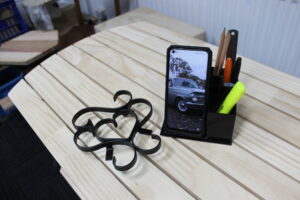Hands-on subjects play a pivotal role in fostering practical skills, creativity, teamwork, and critical thinkingwhile catering to diverse learning needs.
I am a very proud and biased Design and Technology teacher. In my opinion the “Hands on Subjects” here at Eddies are especially important in today’s growing online society. Whether it is the Arts, Cooking, Music, Design and Technology or anything that you can really get your hands dirty.




Hands-on subjects in schools are becoming increasingly valued for their ability to enhance learning through active engagement, practical application, and tangible experiences. From science labs to art studios, these subjects offer unique benefits that contribute to a more comprehensive and well-rounded education.
Practical Application
Hands-on subjects bridge the gap between theory and practice, enabling students to apply their knowledge to real-world situations. Developing projects and ideas in the workshops, engaging in creative projects in art classes, cooking up a storm in our kitchens enhances understanding and critical thinking.
Fostering Creativity and Innovation
Through hands-on experiences, students explore diverse ideas, think creatively, and develop innovative problem-solving skills. Artistic endeavors and experimental projects encourage them to think outside the box.
Developing Motor Skills and Coordination
Vocational hands-on subjects help students hone motor skills and coordination. Engaging in manual activities like woodworking and metalworking fosters dexterity and self-confidence.
Teamwork and Communication
Hands-on subjects encourage teamwork and communication through group projects and collaborative activities. Students learn to work together, respect diverse opinions, and effectively communicate ideas.
Catering to Diverse Learning Styles
Experiential learning caters to various learning styles, particularly kinesthetic learners who thrive through physical engagement. Hands-on subjects ensure that all students can succeed academically.
Hands-on subjects play a pivotal role in fostering practical skills, creativity, teamwork, and critical thinking while catering to diverse learning needs. Integrating these subjects in the curriculum empowers students for success in both academic pursuits and their future endeavours.
Jason Moore
Head of Design and Technology & Hospitality
